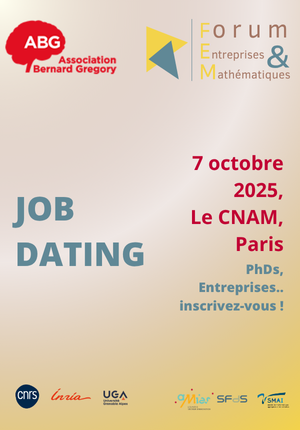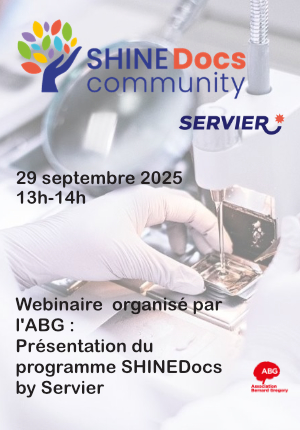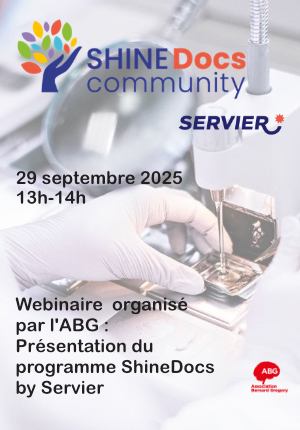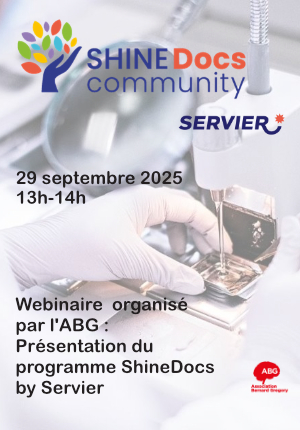Postdoctoral fellow :Mixing enhancement in complex fluid flows and its application to bio-process intensification
| ABG-132942 | Emploi | Confirmé |
| 17/07/2025 | CDD 17 Mois | Salaire à négocier |
Employeur
Public establishment belonging to IMT (Institut Mines-Télécom), placed under the supervision of the Ministry of Economy, Finance and Industrial and Digital Sovereignty, IMT Nord Europe has three main objectives: providing our students with ethically responsible engineering practice enabling them to solve 21st century issues, carrying out our R&D activities leading to outstanding innovations and supporting territorial development through innovation and entrepreneurship. Ideally positioned at the heart of Europe, 1 hour away from Paris, 30 min from Brussels and 1h30 from London, IMT Nord Europe has strong ambitions to become a main actor of the current industrial transitions, digital and environmental, by combining education and research on engineering and digital technologies.
Located on two main campuses dedicated to research and education in Douai and Lille, IMT Nord Europe offers research facilities of almost 20,000m² in the following areas:
- Digital science,
- Energy and Environment,
- Materials and Processes.
For more details, visit the School’s website : www.imt-nord-europe.fr
The position is to be filled within the Energy and Environmental Center for Education, Research and Innovation – CERI EE (https://recherche.imt-nord-europe.fr/energie-environnement-ceri/). This center includes, in addition to around fifty PhD students and postdoctoral researchers, 30 permanent academics, 12 engineers and technicians, and 2 administrative assistants. It is structured into three thematic areas and two technical and expertise hubs. The selected candidate's missions will be carried out within the thematic area “Energy, Fluids, and Transfers,” whose activities focus on the decarbonization of society. This includes the analysis of mechanisms for intensifying transfer phenomena in thermo-fluidic components, at various scales, for applications in the fields of process engineering and energy. She/he will join in particular the Complex Fluid Flows lab, that conducts research on complex fluids, complex flows, and their role in transfer and process intensification.
Poste et missions
BRIEF: In present day's urgency for ecological and energy transitions, the development of technologies combining bio-sequestration of greenhouse gases with production of bio-based products for industrial, chemical/pharmaceutical or food applications shows extremely promising potential and assets for circular economy. A number of such bio-processes, for example high added value compound production from microorganisms (micro-algae, fermentation...), involve the use of fluids that are inherently complex due to their biological nature, with non-Newtonian and process-evolving rheology. Production efficiency depends on the ability of the medium to capture and mix compounds necessary for the cultivated product to grow. Mastering process intensification through enhanced heat-mass transfer and mixing is extremely challenging, since i) agitation is at the same time required but may also damage the microorganisms at high shear-rates and alter the production yield and quality [1]; and since ii) mixing performances are also sensitive to the complex and process evolving fluid properties. Thus, strategies to ensure efficient mixing with limited imposed shear-stress, adaptable to complex fluid's rheology, have to be found.
This postdoctoral position is embedded within two complementary research projects that aim to unravel and exploit novel hydrodynamic strategies for bio-process intensification.
- IFrOG explores the use of oscillating grid turbulence - a common play-field for the study of turbulence at low mean shear and its interplay with other physical phenomena [2], [3], [4] - as a mixing enhancer in complex fluids, offering low-shear yet highly effective agitation conditions tailored for shear-sensitive organisms. In this context, an extensive experimental and numerical investigation of turbulence properties and generation mechanisms and has already been performed in Newtonian fluids [5] and remains to be transposed to non-Newtonian cases.
- BioACE, on the other hand, investigates Poiseuille–Rayleigh–Bénard–Marangoni instabilities [6] to unlock new modes of continuous bioreactor operation at high cell densities.
Together, these projects provide a unified framework where rheology and advanced experimental (Particle Tracking Velocimetry, Laser induced fluorescence …) and numerical techniques (direct numerical simulations) are leveraged to understand and optimize mixing, transfer, and ultimately growth in complex biological media.
[1] C. Wang et C. Q. Lan, « Effects of shear stress on microalgae – A review », Biotechnol. Adv., vol. 36, p. 986‑1002, 2018, doi: https://doi.org/10.1016/j.biotechadv.2018.03.001.
[2] T. Lacassagne, M. EL Hajem, J.-Y. Champagne, et S. Simoëns, « Turbulent mass transfer near gas-liquid interfaces in water and shear-thinning dilute polymer solution », Int. J. Heat Mass Transf., vol. 194, p. 122975, sept. 2022, doi: 10.1016/j.ijheatmasstransfer.2022.122975.
[3] R. N. Arnott, M. Cherif, L. D. Bryant, et D. J. Wain, « Artificially generated turbulence: a review of phycological nanocosm, microcosm, and mesocosm experiments », Hydrobiologia, janv. 2021, doi: 10.1007/s10750-020-04487-5.
[4] L. San, T. Long, et C. C. K. Liu, « Algal Bioproductivity in Turbulent Water: An Experimental Study », Water, vol. 9, no 5, p. 304, avr. 2017, doi: 10.3390/w9050304.
[5] V. Musy, A.-L. Hantson, D. Thomas, J.-C. Baudez, et T. Lacassagne, « Experimental characterization of the flow and turbulence generated by fractal oscillating grids », Phys. Fluids, vol. 36, no 10, p. 105162, oct. 2024, doi: 10.1063/5.0228992.
[6] L. Bammou, S. Blancher, Y. Le Guer, K. El Omari, et B. Benhamou, « Linear stability analysis of Poiseuille–Bénard–Marangoni flow in a horizontal infinite liquid film », Int. Commun. Heat Mass Transf., vol. 54, p. 126‑131, mai 2014, doi: 10.1016/j.icheatmasstransfer.2014.03.008.
Mobilité géographique :
Prise de fonction :
Profil
Ph.D in fluid mechanics, process engineering, soft matter or any related field
Ph.D defense less that 3 year prior to contract commencement.
|
Mandatory Performing fluid dynamics experiments and/or high fidelity direct numerical simulations Programming
Analytical skills Organization Communication Proficiency in English language
Desired Image processing Rheological and physicochemical characterization Mechanical engineering & design (CAD)
Optional Ability to read and speak French |
Mandatory Fluid dynamics
Desired Rheology, soft matter Optical methods for fluid dynamics (PIV, PTV, PLIF…)
Optional Bioprocess engineering
|
Vous avez déjà un compte ?
Nouvel utilisateur ?
Vous souhaitez recevoir nos infolettres ?
Découvrez nos adhérents
 Laboratoire National de Métrologie et d'Essais - LNE
Laboratoire National de Métrologie et d'Essais - LNE  Tecknowmetrix
Tecknowmetrix  CASDEN
CASDEN  ASNR - Autorité de sûreté nucléaire et de radioprotection - Siège
ASNR - Autorité de sûreté nucléaire et de radioprotection - Siège  SUEZ
SUEZ  Nokia Bell Labs France
Nokia Bell Labs France  MabDesign
MabDesign  Généthon
Généthon  ONERA - The French Aerospace Lab
ONERA - The French Aerospace Lab  MabDesign
MabDesign  Groupe AFNOR - Association française de normalisation
Groupe AFNOR - Association française de normalisation  CESI
CESI  ANRT
ANRT  ADEME
ADEME  TotalEnergies
TotalEnergies  Aérocentre, Pôle d'excellence régional
Aérocentre, Pôle d'excellence régional  PhDOOC
PhDOOC  Institut Sup'biotech de Paris
Institut Sup'biotech de Paris  Ifremer
Ifremer




